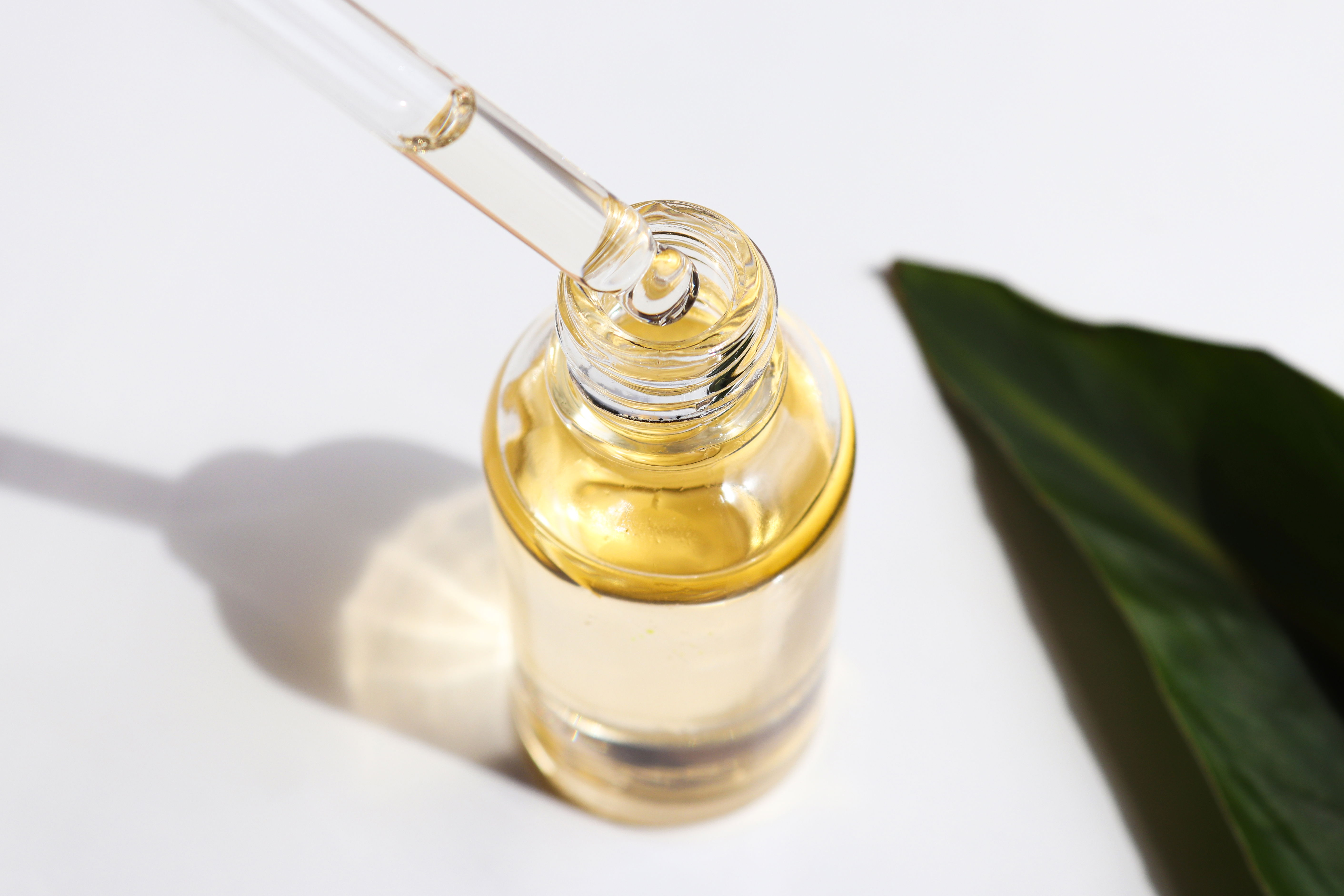The Magic of Serotonin: Your Path to Happiness and Well-Being

Serotonin is a key neurotransmitter that plays a crucial role in regulating mood, sleep, appetite, and even digestion. Often called the "happiness hormone," serotonin is essential for maintaining a balanced and healthy life.
Understanding how serotonin works can help you take control of your mood and well-being. Let’s explore how serotonin is released, its effects, and how you can naturally boost its levels.
What is Serotonin and When is it Released?
Endorphins are released in response to:
Serotonin is a neurotransmitter, a chemical messenger that transmits signals between nerve cells throughout the body. It is derived from tryptophan, an essential amino acid found in foods like turkey, nuts, and cheese. Serotonin is released in response to:
- Positive Experiences: Engaging in enjoyable activities or experiencing positive emotions can increase serotonin levels.
- Sunlight: Exposure to natural light is one of the most effective ways to boost serotonin production.
- Diet: Consuming foods rich in tryptophan can increase serotonin levels.
Where is Serotonin Released From?
Serotonin is primarily produced in the gastrointestinal tract (about 90%) and the brain's raphe nuclei.
Once released, it travels through the bloodstream and acts on various organs, including the brain, to regulate mood and behaviour.
How Long Do the Effects of Serotonin Last?
The effects of serotonin can vary depending on the individual and the context. While the mood-boosting effects of serotonin can be felt relatively quickly, maintaining balanced levels over time is essential for long-term mental health.
The body's natural regulation of serotonin levels means that effects are generally balanced and sustained, especially when influenced by lifestyle habits like diet and exposure to sunlight.

Effects of Serotonin on the Body
Serotonin influences many aspects of our physiology and behavior, including:
- Mood Regulation: Serotonin helps regulate mood, preventing depression and anxiety.
- Sleep: It plays a role in regulating sleep-wake cycles and promoting restful sleep.
- Appetite Control: Serotonin influences hunger and satiety, helping regulate food intake.
- Digestive Health: It aids in bowel function and reduces the perception of pain in the gut.
- Cognition: Serotonin impacts memory, learning, and decision-making.
Activities That Boost Serotonin Release
To naturally boost your serotonin levels, try incorporating these activities into your daily routine:
- Exercise: Regular physical activity increases serotonin production, enhancing mood and energy levels.
- Sunlight Exposure: Spending time outdoors in natural light, especially in the morning, can boost serotonin levels.
- Healthy Diet: Eating foods rich in tryptophan, such as eggs, cheese, turkey, and nuts, supports serotonin production.
- Mindfulness and Meditation: Practices that promote relaxation and reduce stress can enhance serotonin activity.
- Positive Social Interactions: Engaging in meaningful relationships and social activities can increase serotonin levels.
Understanding Serotonin Addiction
Unlike substances that can lead to addiction, serotonin itself does not cause dependency. However, behaviors that excessively stimulate serotonin production, such as certain foods or activities, can lead to a psychological reliance on these behaviors for mood regulation. The key is to maintain balance and avoid over-reliance on any single source of serotonin stimulation.
Achieving a Natural Serotonin High
Exercise Regularly: Find an activity you enjoy, and aim for at least 30 minutes of moderate exercise most days of the week.
Here are some tips to naturally boost your serotonin levels and enjoy its benefits:
- Stay Active: Engage in regular exercise, whether it's walking, cycling, or yoga, to boost serotonin production.
- Enjoy the Outdoors: Spend time in nature and soak up sunlight to enhance your mood and serotonin levels.
- Eat a Balanced Diet: Include foods rich in tryptophan and omega-3 fatty acids, like salmon and walnuts, in your meals.
- Practice Gratitude: Focusing on positive aspects of your life and expressing gratitude can elevate your mood and serotonin levels.
- Build Connections: Nurture positive relationships and engage in activities that foster a sense of community and belonging.

Elevate Your Mood Naturally: Essential Oils to Support Serotonin and Enhance Well-Being
Supporting serotonin levels naturally can help improve mood, reduce anxiety, and promote overall well-being. While essential oils don't directly increase serotonin, they can create an environment that encourages its production by helping to reduce stress, improve sleep, and elevate mood.
Here are some essential oils known to support serotonin production:
1. Lavender
- Benefits: Lavender is one of the most well-known essential oils for promoting relaxation and reducing stress. It helps calm the nervous system, which can indirectly support serotonin production, improving mood and sleep quality.
- Usage: Diffuse lavender oil in the evening, add a few drops to a bath, or apply topically after diluting with a carrier oil to promote a sense of calm and relaxation.
2. Bergamot
- Benefits: Bergamot oil has uplifting and mood-enhancing properties. It’s often used to relieve anxiety and depression, which are linked to low serotonin levels. Its citrusy scent can help boost positivity and support a balanced mood.
- Usage: Diffuse bergamot oil in your living space, mix it with a carrier oil for topical application, or add a few drops to a bath for an uplifting experience.
3. Roman Chamomile
- Benefits: Roman chamomile is known for its calming effects and ability to ease stress and anxiety. By promoting relaxation, chamomile may support serotonin production, helping to stabilise mood and improve sleep.
- Usage: Use chamomile oil in a diffuser, add it to a warm bath, or apply it to your wrists and temples for a soothing effect.
4. Clary sage
- Benefits: Clary sage is known for its ability to reduce stress and balance hormones, which can positively affect serotonin levels. It’s also used to alleviate symptoms of depression and anxiety.
- Usage: Diffuse clary sage oil, add it to a bath, or dilute it with a carrier oil for topical use to help create a relaxing atmosphere.
5. Frankincense
- Benefits: Frankincense oil is grounding and calming, helping to reduce stress and anxiety. It can support emotional balance, which may positively impact serotonin levels.
- Usage: Diffuse frankincense oil during meditation, apply it topically (diluted), or add it to a bath to promote a sense of peace and well-being.
6. Rose
- Benefits: Rose oil has a powerful effect on emotions, helping to alleviate feelings of depression, stress, and anxiety. It can promote a positive mood, supporting the natural production of serotonin.
- Usage: Use rose oil in a diffuser, apply it to pulse points after dilution, or incorporate it into a relaxing bath.
7. Lemon
- Benefits: Lemon oil is uplifting and energising, helping to improve mood and reduce feelings of depression and anxiety. Its refreshing scent can promote a positive mental outlook, which may support serotonin production.
- Usage: Diffuse lemon oil during the day for an energy boost, or inhale it directly from the bottle when you need a quick pick-me-up.
How to Use Essential Oils for Serotonin Support
- Diffusion: Add a few drops of your chosen essential oil to a diffuser to create a soothing or uplifting atmosphere, depending on your needs.
- Topical Application: Dilute essential oils with a carrier oil (such as jojoba or almond oil) before applying them to the skin. Focus on pulse points, such as the wrists, temples, and behind the ears.
- Inhalation: Inhale directly from the bottle or place a few drops on a tissue or cotton ball and breathe deeply to experience the calming effects.
- Bath: Add a few drops of essential oil to your bathwater to relax your body and mind, creating an ideal environment for serotonin support.
- Massage: Combine essential oils with a carrier oil for a relaxing massage that can help reduce stress and promote a sense of well-being.
By incorporating these essential oils into your daily routine, you can create an environment that supports serotonin production, helping you to feel more balanced, positive, and relaxed.
Conclusion
Serotonin is a vital neurotransmitter that influences mood, sleep, appetite, and overall well-being. By understanding how it works and incorporating activities that naturally boost its levels, you can harness the power of serotonin to enhance your quality of life.
Remember, balance and a healthy lifestyle are key to maintaining optimal serotonin levels and achieving lasting happiness and well-being.
Download the full article (and Serotonin hacks) below